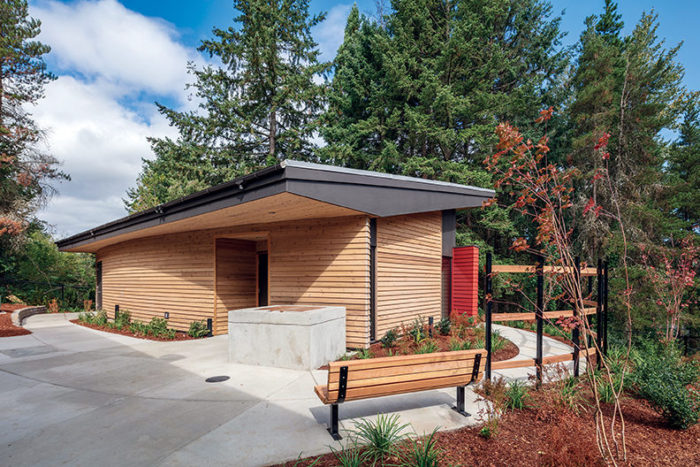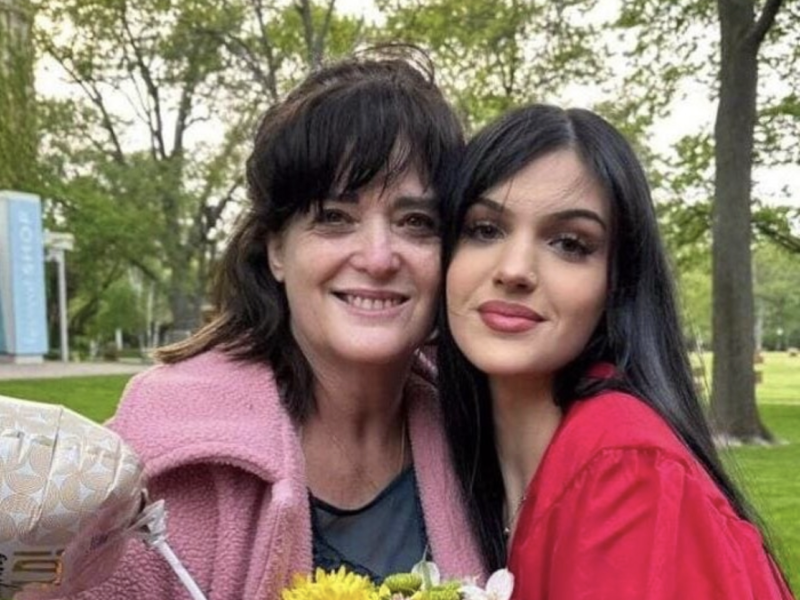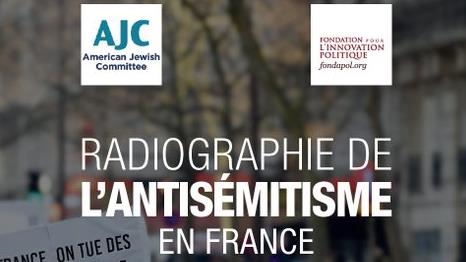
Photo by Benjamin Ariff
With broad organizational and grassroots support, Portland’s new community mikvah opened Nov. 1 to provide every Jew access to the ritual bath for all traditional and contemporary transitions and milestones.
Rachel’s Well is now open on the Schnitzer Family Campus in a secluded, natural setting. Owned by the Jewish Federation of Portland with ritual supervision provided by the Oregon Board of Rabbis, the community mikvah is open to all who self-identify as Jewish. Since all attendants, or guides, are volunteers, reservations for immersions must be made four days in advance.
A mikvah is a Jewish ritual bath fed by natural waters and traditionally used to mark transitions such as conversions or from workweek to Shabbat or holiday, and to observe the laws of family purity. Contemporary uses include marking milestones or transitions of all sorts.
“Federation saw a need to create a space for the entire community in the area it is in now,” says Ronnie Malka, who led the visioning process and capital campaign for the new mikvah.
She says the new mikvah incorporates all the elements envisioned by community feedback, including being “in nature, very Portland and not square.” Reflecting the change inherent in the mikvah experience, Ronnie says it also allows people to enter through one door into the reception area and depart by another door along a beautiful, serene path through nature.
The 30 volunteer guides participated in a one-day training led by Naomi Malka, director of the Adas Israel Mikvah and Ronnie’s sister-in-law, who introduced Ronnie to the mikvah’s magic.
“Using the mikvah to mark transitions is one way people take normal human transitions and make them Jewish,” says Portland Jewish educator Deborah Eisenbach-Budner. “There is a national trend to make Jewish spiritual spaces that allow for both traditional expression and innovation.”
“The mikvah, seeking to include the broadest observance levels of the community, has various structures to kosher the water,” says Rabbi Tzvi Fischer, who chairs the OBR committee that supervises the mikvah. “There are two rainwater pools, one of which is a pool on top of a pool. This is to ensure that even with water displacement due to immersions, it remains natural rainwater. The city water runs over earth and into a rainwater pool to regenerate its natural form.”
Portland does have a women’s mikvah, Mikvah Shoshana, which opened in 1998 to promote family purity – where women immerse in order to “re-enter the holy, loving, mindful intimacy and mitzvah of the marital relationship.” But men and those who want to mark contemporary transitions have not had a local mikvah available since the July 2016 closure of the Portland Ritualarium that had served the community since 1961.
“I believe in the power of traditional ritual to ground us in our Jewish sense of identity,” says Rabbi Ariel Stone, who was OBR president when the old mikvah closed and led the mikvah subcommittee serving with Rabbis Ken Brodkin, Tzvi Fischer, Michael Kaplan and Laurie Rutenberg.
“In halakha, ritual immersion marks a spiritual transition from one state to another … . We traditionally mark the transition from non-Jew to Jew in conversion, from separateness to intimacy in family life, and from the week to Shabbat. Today new uses of the mikvah include the celebration of transitions such as that of gender or age (bar/bat mitzvah and also menopause). Immersion in a mikvah is also a powerful way to transition through the pain of divorce or support recovery from personal trauma.”
Representatives from across the spectrum of the community shared why a kosher community mikvah is important for them.
Eve Levy of the Portland Kollel says, “Mikvah is all about rebirth, renewal and rejuvenation. I have been teaching women about this mitzvah and have been taking women to the mikvah for over a decade now in Israel, Denver and now Portland. Many women that I have taken are first-time users, either before their wedding or coming to this at a later stage of life. On JWRP trips to Israel, we take the women to visit a very beautiful mikvah in the mystical city of Tsfat. … Many of the women follow up with me after the trip and start observing the laws of family. It is an opportunity to let things go and start anew each month. In my opinion observing the laws of family purity can significantly enhance the excitement and love in a marriage.”
Yet Toni Jaffe, who was on one trip, was disappointed she could not use the mikvah. “I was told (nicely) that the mikvah on our trip was not available to me because I was not married, having my cycle anymore, etc.,” says Toni. So when she learned Rachel’s Well would be open to all Jews, she made the biggest donation of her life to any organization.
“This is important to me and the LGBTQ community, because we are Jews and we want to participate fully in the life-cycle events available to others,” says Toni. “The mikvah is one of the most important rituals to bless those life events and celebrations – marriage, adopting/birthing a child, becoming Jewish, significant life events like mourning a death or loss, having your bar or bat mitzvah and more.”
For Kesser Israel member Michael Rosenberg, having a community mikvah open to men near his Orthodox shul is very important as part of his preparation for the transition to Shabbat each week.
“It’s nice to have a place to go to that is nearby and specifically used for ritual purity and preparation for Shabbos and Yom Tov,” says Michael. He adds the mikvah is important to Orthodox men, because “It is part of the preparation process. We go into Shabbos knowing all our weekly work is done. … Before you go into the mikvah, you are not ritually fit for serving HaShem. After the immersing in the mikvah, you are ready for service. It is not so much a physical state; it is a state of consciousness.”
For the many Israelis who come to Portland to begin their families through surrogate births, the mikvah is also very important. Surrogate births to Israelis in Oregon (see cover story, page 28) have soared in the past five years, but children need to be converted since the child’s Jewish status is defined by the birth mother. Tomer Fuss Sanderovich says, “We heard so many good things about the experience with the Beth Israel community from other couples, and obviously we wanted our twins (and for us) to have this kind of wonderful experience rather than the other back home in Israel.” He adds Rachel’s Well is a “beautiful place, so welcoming, clean and with great atmosphere. (It) was an exciting and emotional experience for us.”
Caron Blau Rothstein, federation’s lead professional for the mikvah, says it is a place where everyone can find meaning.
Visitors will enter the reception area and meet a guide, who will “give space or guidance as you need,” says Caron.
The mikvah features two beautiful preparation rooms – one a spa-like setting with a deep soaking pool and one ADA-compliant with a roll-in shower.
An area outside the immersion pool room enables family or friends to be present and support or celebrate with the person there for an immersion.
The mikvah committee is working with the Oregon Jewish Museum to curate art for the reception and immersion areas.
With a beautiful mikvah open to all in an accessible location, many people have expressed confidence the new space will introduce many Portlanders to a tradition both ancient and modern.
“I’m happy for all the interest in the new mikvah and hope everyone will come to see for themselves and ‘take the plunge’” says Michael Rosenberg.
To schedule an appointment or for more information, visit jewishportland.org/mikvah.





